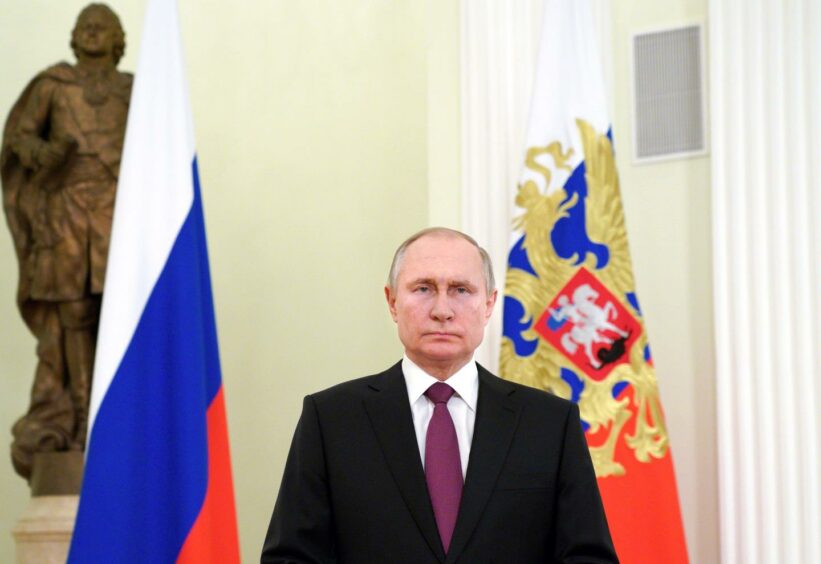
European natural gas prices soared after Russian forces attacked targets across Ukraine in an effort to demilitarize the country. The West vowed further sanctions.
Benchmark Dutch futures gained as much as 41% to as much as 125 euros a megawatt-hour in their fourth-straight daily advance. Prices have jumped throughout the week as tensions over Ukraine intensified.
Russia launched a barrage of missile attacks early Thursday, with Ukraine’s Interior Ministry warning that the capital, Kyiv, was being targeted and urging citizens to go to shelters. Ukraine’s border guard said that it was being shelled from five regions, including from Crimea in the south and Belarus to the north.
In a nationally televised address ahead of the offensive, Putin said that Russia doesn’t plan to “occupy” its southern neighbor but said the action was necessary after the U.S. and its allies crossed Russia’s “red line” by expanding the NATO alliance. U.S. President Joe Biden called Putin’s move “an unprovoked and unjustified attack” and said the “world will hold Russia accountable.”
Biden said that he would meet his Group of Seven counterparts Thursday and then speak to the American people to announce further punishments that would be placed on Moscow. Any sanctions curbing Russia’s access to foreign currency could upend commodity markets from oil and gas, to metals and food.
The crisis puts fuel supplies in Europe — which is already in the midst of an energy crunch — at further risk. The continent depends on Russia for more than a third of its gas supply, and low inventories of the fuel last year sent prices to record levels. Russia aims to keep its gas supplies abroad “uninterrupted,” Energy Minister Nikolai Shulginov said earlier this week.
Fuel Supplies
Germany has already suspended its certification of the Nord Stream 2 pipeline that would ship gas directly from Russia to Europe. The U.S. on Wednesday added the project to its sanctions on Russia.
Analysts from Goldman Sachs Group to Wood Mackenzie and Rystad Energy forecast higher prices to last through the remainder of this year because of a deficit of the fuel used in power generation, industry and heating.
Benchmark Dutch gas futures traded at 30% higher at 116 euros a megawatt-hour by 8:02 a.m. in Amsterdam.
The European Union is planning an emergency in-person summit of the bloc’s leaders on Thursday to discuss the crisis. Europe will have to compete with Asia for liquefied natural gas should pipeline shipments from Russia get disrupted as a result of the crisis.
Around a third of Russia’s gas to Europe typically flows via Ukraine, and analysts have said any escalation of the conflict may disrupt those flows.
“In the event of prolonged disruption, gas inventory couldn’t be rebuilt through the summer,” Kateryna Filippenko, principal analyst for Europe gas research at WoodMac, said in an emailed note on Wednesday. “We’d be facing a catastrophic situation of gas storage being close to zero for next winter. Prices would be sky high. Industries would need to shut down. Inflation would spiral. The European energy crisis could very well trigger a global recession.”
Recommended for you
